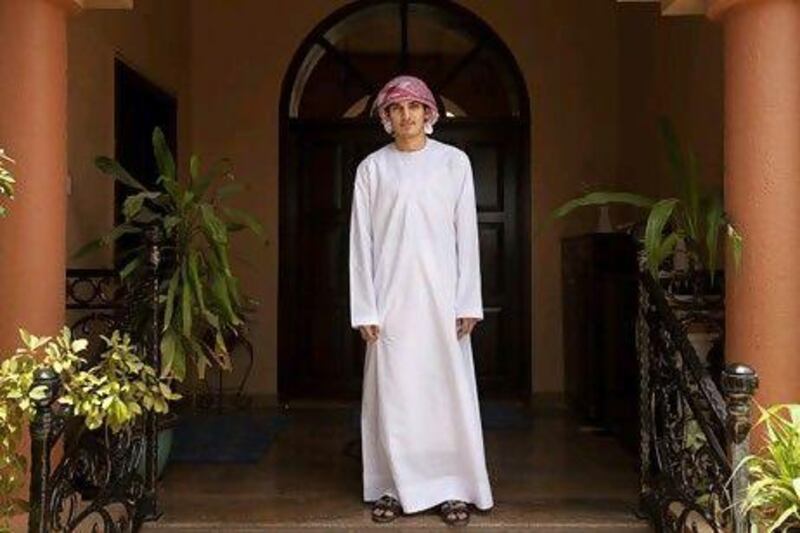Mohammed Abdulla Mohammed might be soft-spoken, but he certainly has entrepreneurial spirit.
At just 17, Mr Mohammed showed he was capable of leading 19 fellow pupils on a special venture at Omar Bin Khattab Model School for Boys in Abu Hail, Dubai.
The group selected him to head its T-shirt company, Wear It, as part of a business competition organised by Injaz-UAE this year.
His experience at his father's businesses during the past seven summers was paying off.
"At summer people stay at home, [but] I went to work," said Mr Mohammed.
His team did not win the top prize, however. The awards for the best company and best chief executive went to the team from Al Salam Public School For Girls in the fourth annual competition organised by Injaz-UAE in partnership with the Khalifa Fund for Enterprise Development to foster leadership among Emirati pupils.
Led by Al Onoud Al Mulla, the group from Al Salam Public School set up The Science Whizz, a company that carried out science experiments at birthday parties and staged exhibitions for children between ages 4 and 12.
"If you are the best, you have to know the business plan step by step," Ms Al Mulla said. "It is also about teamwork."
Such competitions help youngsters to understand the benefits and challenges of entrepreneurship.
"The aim is to prepare Emirati youth to think about self-employment as a viable option," said Sulaf Saleh Al-Zu'bi, the chief executive of Injaz-UAE, a local chapter of Junior Achievement Worldwide.
Teams from schools with at least 80 per cent Emirati pupils had 15 weeks to devise business plans, form companies, elect boards, vote in chief executives, vice presidents and human resources teams, raise US$1,000 (Dh3,673) from investors, and liquidate the ventures at the end of the programme to repay the investors.
"The toughest part of being a chief executive was convincing classmates to participate [in the company]," said Mr Mohammed, who has been running his own small-scale key-chain business with friends for less than a year now. "They thought they cannot get anything from it or [that] it would be boring."
But he told themthey had the chance to develop business skills.
The programme also helped to instil the capabilities to handle business relationships among potential entrepreneurs, and help the youngsters work as a team.
"Have a relationship with the managers [or other pupils involved in the company project]," said Ms Al Mulla, 17, who has worked in her brother's tourism company during the past few summers.
"If they love you, they will give you more. Love them as a family." Georgina Kelly, an entrepreneur and a mentor for Mr Mohammed's team, believes such competitions are vital to prepare the next generation of Emirati business leaders. She was delighted with her team's performance.
"They had two weeks to come up with a business idea," Ms Kelly said on the sidelines of a meeting of an informal networking group called Dubai Business Breakfast.
As for Mr Mohammed, he relished the challenge of running a company.
"I also learned never to surrender," he said, even with some of his team members wanting to quit to study for their end-of-term exams.
When Mr Mohammed liquidated the company, the team had made $3,000 from selling its T-shirts. Most of that went back to the investors, and $500 was donated to charity.
"They bought a share for Dh8 and we gave them back around Dh12," said Mr Mohammed.
The project was such a success, the T-shirt business has been resurrected.





